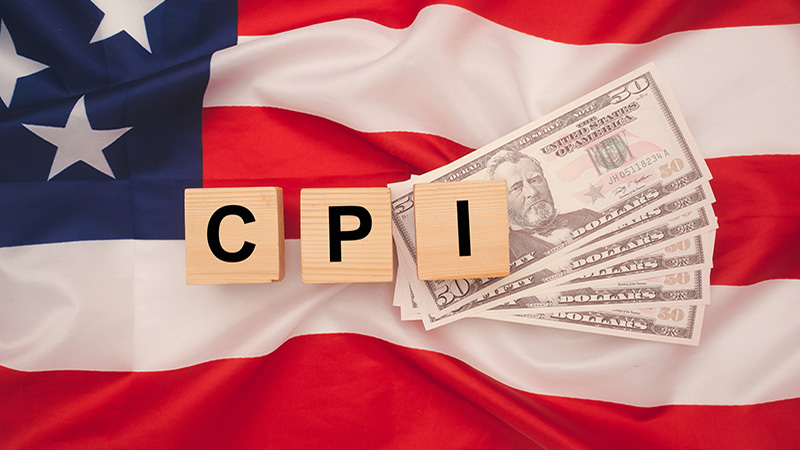March CPI Cools——But What About April?
Strangely enough, under the heavy shadow of Trump's tariff policies, U.S. March CPI unexpectedly cooled. Year-over-year, CPI rose just 2.4%, lower than the expected 2.5%. On a month-over-month basis,

Strangely enough, under the heavy shadow of Trump's tariff policies, U.S. March CPI unexpectedly cooled. Year-over-year, CPI rose just 2.4%, lower than the expected 2.5%. On a month-over-month basis, CPI declined 0.1%, compared to a forecasted increase of 0.1%. Core CPI, which excludes volatile food and energy prices, also came in below expectations.

However, due to the market's focus on tariff policy, the impact of this CPI data was limited. After the release, the U.S. dollar index fell slightly, gold prices edged up, and markets are now almost fully pricing in a Fed rate cut starting in June.
Looking at category breakdowns: used cars and trucks, auto insurance, and airline fares all fell. Energy prices declined broadly, with gasoline down a staggering 6.3%, contributing the most to the cooling CPI. On the other hand, prices for food, healthcare, apparel, and new vehicles rose.
Still, it's important to note that this CPI reading only reflects March data, and does not yet capture the effects of the newly imposed tariffs. Economists broadly believe tariffs will drive higher inflation and weaken U.S. economic growth in the coming months.

Already, many American companies are planning price hikes. walmart, the world's largest retailer, sources roughly one-third of its U.S. merchandise from direct imports — with China and Mexico being top suppliers. According to morgan stanley, Trump's new round of tariffs could push prices of Chinese goods sold at Walmart up 15%–25%. As a result, U.S. consumers are becoming more cautious, and Walmart has canceled its Q1 earnings guidance.
Target and Volkswagen have also warned that rising costs from tariffs will be passed on to consumers.
Apple, the dominant player in the premium smartphone market, is arguably the biggest corporate victim of Trump's tariffs. Most of Apple's supply chain is based in China. With Trump imposing a 125% tariff on Chinese goods, iPhone production costs could rise by about $600 — meaning an iPhone 16 Pro could cost $1200 to build, even higher than the current retail price of $1100. Even if apple relocates production to the U.S., it would still face import duties on parts, keeping costs high. UBS analysts estimate that if Apple shifts the burden to customers, top-tier iPhones in the U.S. could see their prices jump from $1199 to $1550 — a 30% increase.
Apple's critical China market would also take a hit. About 33% of iPhone 15 Pro Max components are U.S.-made, and those parts would now be subject to an 84% retaliatory tariff when entering China. That would significantly raise costs. Meanwhile, local Chinese phone brands, largely manufactured by TSMC and Samsung, are less exposed to U.S. tariffs. On top of that, anti-U.S. sentiment in China has surged, potentially damaging American brand reputations.
Chinese-made home appliances are being snapped up by consumers. On Amazon, Chinese TV brands — even with a 30% markup — are still selling out. Many PC manufacturers have suspended shipments to the U.S. or are planning major price increases.

Delta Air Lines — the most profitable U.S. airline — didn't mince words. Its CEO bluntly stated that due to Trump's "mistaken approach," bookings have been disappointing, with travel demand softening. The airline will not expand capacity in the second half of the year.
Trump's goal is to force supply chains to move out of China, but that's far easier said than done. Harvard Business School research shows that rebuilding even 10% of China's supply chain capacity would require about $2.7 trillion in investment. Moreover, no country in the world has the comprehensive industrial infrastructure, vast talent pool, and low labor costs that China offers.
Disclaimer: The views in this article are from the original Creator and do not represent the views or position of Hawk Insight. The content of the article is for reference, communication and learning only, and does not constitute investment advice. If it involves copyright issues, please contact us for deletion.